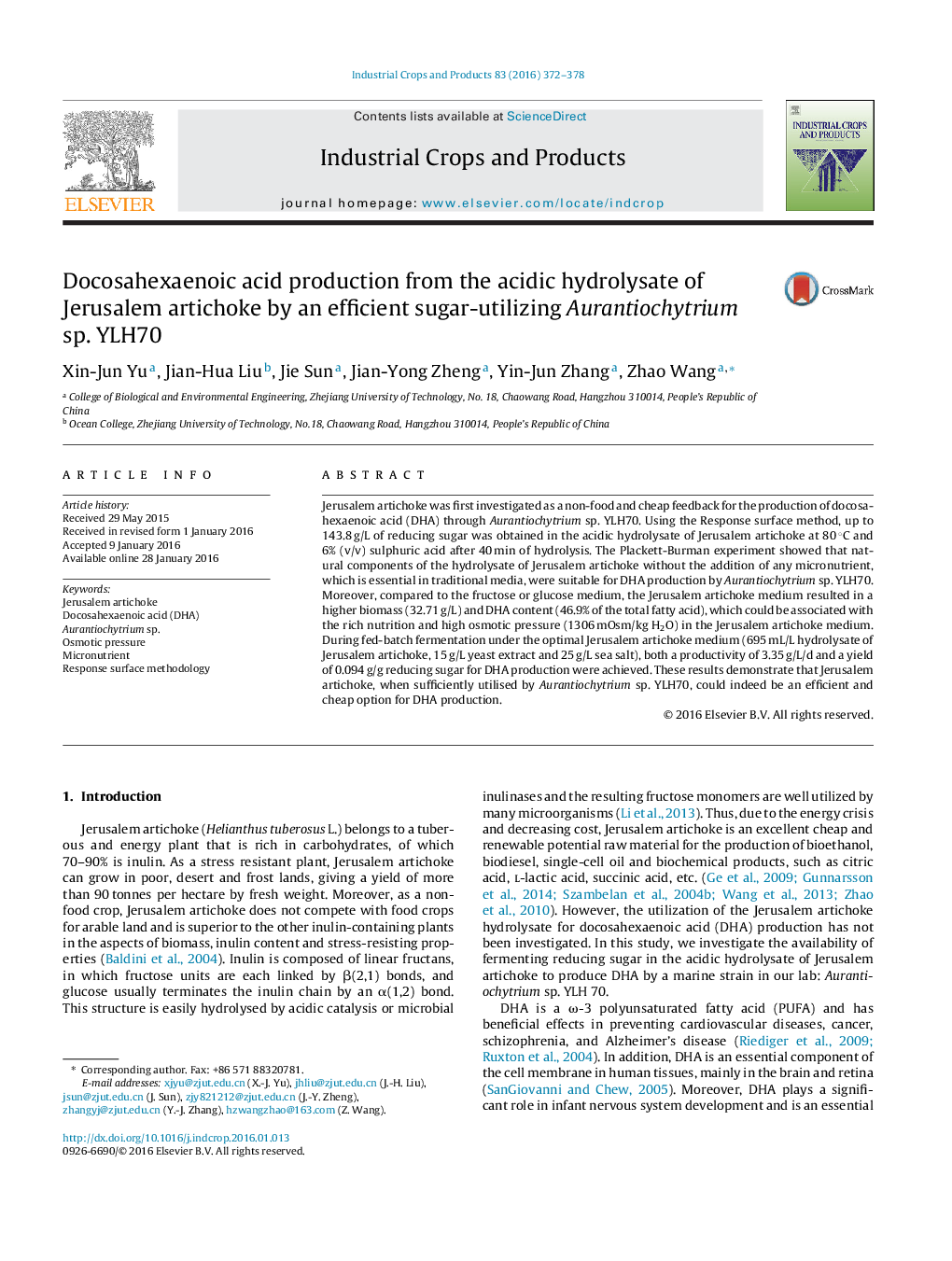| کد مقاله | کد نشریه | سال انتشار | مقاله انگلیسی | نسخه تمام متن |
|---|---|---|---|---|
| 4512343 | 1624827 | 2016 | 7 صفحه PDF | دانلود رایگان |

• Jerusalem artichoke was investigated for DHA production through Aurantiochytrium.
• Sulphuric acid was the optimal acid for hydrolysing Jerusalem artichoke to release reducing sugar.
• No trace elements, vitamins, and less amount of nitrogen source were needed in the Jerusalem artichoke medium for growth.
• The high osmotic pressure in the Jerusalem artichoke medium could enhance DHA yield by Aurantiochytrium.
• Effects of different media on the biomass, lipid and DHA production were compared.
Jerusalem artichoke was first investigated as a non-food and cheap feedback for the production of docosahexaenoic acid (DHA) through Aurantiochytrium sp. YLH70. Using the Response surface method, up to 143.8 g/L of reducing sugar was obtained in the acidic hydrolysate of Jerusalem artichoke at 80 °C and 6% (v/v) sulphuric acid after 40 min of hydrolysis. The Plackett-Burman experiment showed that natural components of the hydrolysate of Jerusalem artichoke without the addition of any micronutrient, which is essential in traditional media, were suitable for DHA production by Aurantiochytrium sp. YLH70. Moreover, compared to the fructose or glucose medium, the Jerusalem artichoke medium resulted in a higher biomass (32.71 g/L) and DHA content (46.9% of the total fatty acid), which could be associated with the rich nutrition and high osmotic pressure (1306 mOsm/kg H2O) in the Jerusalem artichoke medium. During fed-batch fermentation under the optimal Jerusalem artichoke medium (695 mL/L hydrolysate of Jerusalem artichoke, 15 g/L yeast extract and 25 g/L sea salt), both a productivity of 3.35 g/L/d and a yield of 0.094 g/g reducing sugar for DHA production were achieved. These results demonstrate that Jerusalem artichoke, when sufficiently utilised by Aurantiochytrium sp. YLH70, could indeed be an efficient and cheap option for DHA production.
Journal: Industrial Crops and Products - Volume 83, May 2016, Pages 372–378